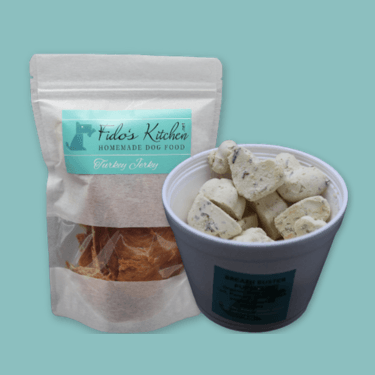Why Jerky Treats are Paw-some for Your Furry Friends
Pet owners worldwide understand the joy of rewarding their furry companions with delicious treats. Among the myriad options available, jerky treats stand out as a premium choice for both dogs and cats. These chewy delights not only satisfy your pet's natural urge to gnaw but also provide substantial nutritional benefits when crafted from quality ingredients.
Unlike many commercial treats laden with artificial preservatives and fillers, high-quality jerky treats focus on the essentials: protein-rich meats that mirror what your pet's ancestors consumed in the wild. This alignment with their biological needs makes jerky an exceptional choice for discerning pet parents.
When selecting jerky treats, the ingredient list should be your primary consideration. Optimal jerky treats contain minimal ingredients—predominantly real meat—without synthetic additives or excessive salt. This simplicity ensures your furry friend receives maximum nutrition without unnecessary chemicals.
The Nutritional Prowess of Premium Jerky
Premium jerky treats deliver concentrated protein, essential for muscle maintenance and overall vitality in both canine and feline companions. The dehydration process preserves the meat's nutritional integrity while eliminating moisture that could harbor harmful bacteria, resulting in a shelf-stable product that doesn't compromise on wholesome goodness.
For active dogs and cats, these protein-packed morsels provide sustained energy without the blood sugar spikes associated with carbohydrate-heavy alternatives. This makes jerky particularly advantageous for pets with specific dietary requirements or those prone to weight management challenges.
Choosing All-Natural Jerky for Your Pet's Health
The pet food industry has witnessed a paradigm shift toward natural ingredients, reflecting pet owners' growing consciousness about what goes into their companions' bowls. This evolution extends to treats, with all-natural jerky emerging as the gold standard for health-conscious pet parents.
The distinction between standard commercial jerky and all-natural varieties is substantial. Commercial options often contain preservatives such as sodium nitrite, artificial colors, and flavor enhancers that provide no nutritional value and may potentially trigger adverse reactions in sensitive animals.
Conversely, all-natural jerky treats typically feature a remarkably concise ingredient list—sometimes as straightforward as a single protein source plus minimal natural preservatives like rosemary extract or vitamin E. This transparency allows you to know precisely what your beloved pet is consuming.
Ingredients to Embrace and Avoid
When perusing jerky treat options, prioritize those with recognizable ingredients that serve genuine nutritional purposes. Optimal choices include:
- Named animal proteins (chicken, beef, turkey, etc.)
- Natural preservatives like mixed tocopherols (vitamin E)
- Functional additions such as omega-fatty acids
Conversely, exercise caution with treats containing:
- Artificial preservatives (BHA, BHT, ethoxyquin)
- Non-specific meat by-products
- Excessive salt or sugar
- Artificial colors or flavors
For pets with specific dietary sensitivities or restrictions, single-ingredient jerky treats offer a hypoallergenic alternative that minimizes reaction risks while still providing that coveted chewy texture.
Homemade vs. Store-Bought: What's Best for Your Pet?
The jerky treat marketplace presents two primary pathways: commercially produced options or homemade alternatives. Each approach offers distinct advantages worth considering as you determine the optimal choice for your four-legged companion.
Commercial jerky treats undergo rigorous quality control processes and testing protocols to ensure consistency and safety. Reputable manufacturers adhere to strict production standards, resulting in treats with reliable texture, flavor, and shelf-stability. The convenience factor cannot be overstated—commercial treats require no preparation time and are readily available when needed.
However, finding exceptionally high-quality commercial treats without unnecessary additives often comes with a premium price tag. This is where our specially curated treat boxes come into play.
Our Standard Treat Box delivers premium, all-natural jerky treats made with human-grade ingredients right to your doorstep. Each treat is meticulously crafted in small batches to ensure optimal freshness and nutritional integrity, providing your furry friend with the wholesome goodness they deserve without the preservatives found in mass-produced alternatives.
These carefully selected jerky varieties cater to different preferences and dietary needs, allowing you to discover which options your pet adores most. With our subscription service, you'll never run out of healthy rewards for your loyal companion.
Crafting Jerky at Home: A Labor of Love
For the culinarily adventurous pet parent, homemade jerky treats represent an opportunity to exercise complete ingredient control. Creating jerky in your kitchen allows you to select the exact protein sources, eliminate all preservatives, and customize flavors to your pet's preferences.
The process, while straightforward, requires some specialized equipment and time commitment. A food dehydrator provides the most consistent results, though conventional ovens can suffice with careful monitoring. The fundamental approach involves:
- Selecting lean meat (fat can become rancid during storage)
- Slicing uniformly (against the grain for tenderness)
- Minimal seasoning (avoid onions, garlic, excessive salt)
- Thorough dehydration at appropriate temperatures
- Proper storage in airtight containers
The primary advantages of homemade jerky include knowing precisely what ingredients are used, cost-effectiveness for larger pets or multi-pet households, and the satisfaction of providing handcrafted nourishment for your beloved companions.
Jerky as Training Tools: Effectiveness and Application
Beyond their nutritional merits, jerky treats excel as training reinforcements due to their high-value nature in pets' perception. The enticing aroma and chewy texture make jerky particularly motivating during training sessions, often eliciting enthusiastic responses even from otherwise disinterested animals.
Professional trainers frequently recommend jerky for challenging training scenarios or when working with stubborn pets precisely because of its exceptional motivational properties. The concentrated flavor profile means tiny pieces retain sufficient appeal, allowing for multiple rewards without caloric overload.
Strategic Training Applications
Jerky treats prove especially valuable for:
"The effectiveness of training treats directly correlates with their perceived value to the animal. Jerky consistently ranks among the highest-value rewards for both dogs and cats, making it invaluable for teaching crucial behaviors or overcoming training plateaus."
- Professional Animal Behaviorist
For training purposes, consider cutting jerky into appropriately sized morsels—pea-sized for small breeds, slightly larger for medium to large dogs. This preparation allows for multiple rewards during a single session without excessive calorie intake.
Safety Considerations for Jerky Treats
While quality jerky treats offer numerous benefits, responsible pet owners should remain cognizant of certain safety considerations. Awareness of these factors ensures that treat time remains enjoyable without unexpected complications.
Serving Sizes and Frequency
Treats, including jerky, should constitute no more than 10% of your pet's daily caloric intake to maintain nutritional balance. This prudent limitation prevents weight gain while still allowing for enjoyable rewards. The appropriate serving size varies based on your pet's weight, activity level, and the specific jerky's caloric density.
For reference, consider this general guideline:
| Pet Size | Daily Jerky Allotment |
|---|---|
| Small Dogs/Cats (under 10 lbs) | 1-2 small pieces |
| Medium Dogs (10-30 lbs) | 2-3 medium pieces |
| Large Dogs (30-70 lbs) | 3-4 medium pieces |
| Giant Breeds (70+ lbs) | 4-5 medium pieces |
Remember that these recommendations assume jerky treats are not the only treats offered throughout the day. Adjust accordingly if your pet receives other rewards to maintain appropriate total treat consumption.
Frequently Asked Questions About Pet Jerky Treats
Pet owners often have specific questions about incorporating jerky treats into their pet's regimen. Here are answers to common inquiries that may enhance your understanding of these popular rewards.
Addressing Common Concerns
Can puppies and kittens have jerky treats?
Young animals can enjoy jerky treats in moderation, provided the pieces are appropriately sized to prevent choking hazards. For very young pets (under 3 months), softer treat varieties may be more suitable until their teeth and digestive systems mature further.
How long do homemade jerky treats remain fresh?
Properly dehydrated homemade jerky typically maintains freshness for 2-3 weeks when stored in airtight containers at room temperature. Refrigeration extends this period to approximately one month, while freezing allows for storage up to 6 months without significant quality degradation.
Are there specific proteins better suited for pets with allergies?
Novel proteins—those your pet hasn't previously consumed—often work well for allergic animals. Options like venison, rabbit, duck, or kangaroo frequently cause fewer reactions in sensitive pets compared to common proteins like chicken or beef. Single-ingredient jerky treats made from these alternative sources provide excellent options for pets with food sensitivities.
When selecting jerky treats, remember that quality ingredients make all the difference in your pet's health and enjoyment. Whether store-bought or homemade, these protein-rich rewards can become a cherished part of your pet care routine when chosen with care and offered mindfully.


